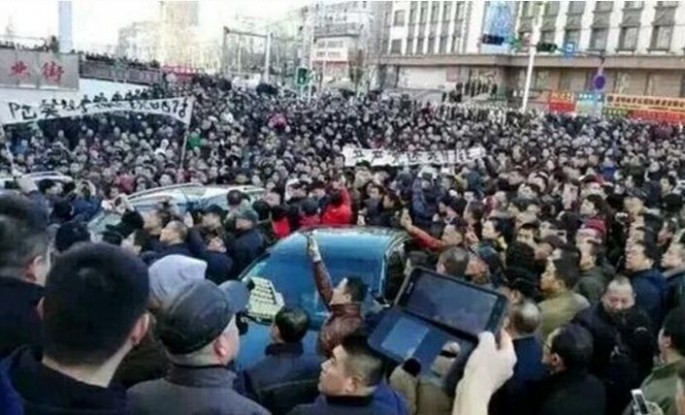The town of Dalianhe in Heilongjiang Province used to be the center of coal mining in the China, what with it being the home of the largest open-pit coal mine in the country. But as closing Chinese coal mines become an increasing occurrence, coal miners are making sure their voices are heard.
“President Xi [Jinping] says nobody should be left behind on the road to China’s prosperity, but now we won’t even be able to feed ourselves,” said Wang Fuxiang, a Dalianhe local and coal miner, in an interview with NPR.
“If they paid us our pensions and health insurance, we’d at least be able to survive,” Wang shared.
Wang is just one of the employees of Longhua Harbin Coal Company. Although it is a subsidiary of China National Coal Group, one of the largest mining companies in the world, Longhua has recently announced it will be closing down by the end of the year.
That means 4,000 workers will be unemployed, and Dalianhe’s main source of revenue gone. Wang fears it will make them poorer than they already are.
Unfortunately, Wang’s hopes of health insurance and pension from Longhua are dashed. Instead of giving away such benefits, Longhua will instead offer a severance pay “equivalent to $500 times the number of years they’ve worked,” according to the NPR report.
In addition, Longhua offered an added $5,000 bonus for employees who will take the severance offer before 2016 ended. Nobody signed the offer.
Other Longhua workers are now scratching their heads, wondering where they’ll find work.
“This is a dangerous job,” said Wu Songtao, a 40-year-old coal miner. “Accidents have killed dozens of workers here. We’ve risked our lives for this mine and we earn just enough to afford cabbage. Now we won’t be able to take care of our parents or children.”
Since labor unions are forbidden in China, Wu and other Longhua miners have taken to WeChat, a social media app, to organize and let their demands be heard. They have set up several chat groups where they discuss matters such as the severance pay and alleged corruption in Longhua.
The group has also taken to social media and posted videos, gaining the attention of labor groups and citizens. The police, however, have also taken notice.
Just one day after the workers met with NPR’s Rob Schmitz, Wu Songtao was arrested by the Dalianhe police. Schmitz himself was approached by the Communist Party secretary of Longhua.
After the confrontation, NPR reported that Wu has been released by the authorities and is in Beijing with some of his colleagues to make a petition to the central government.



























